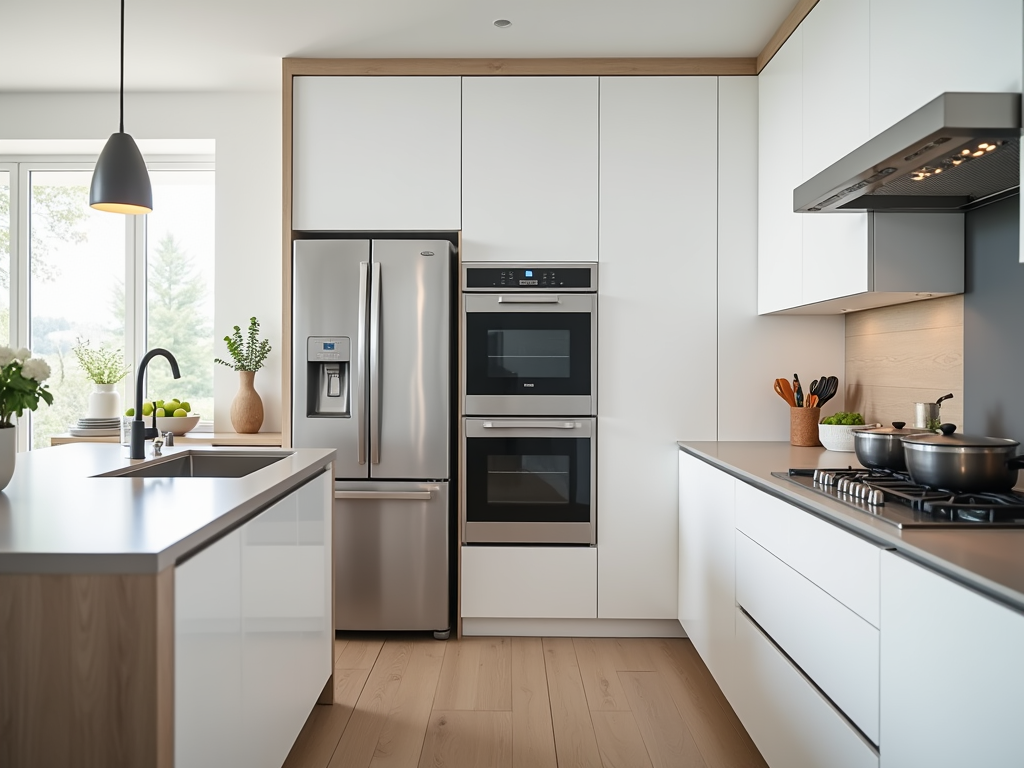Starting a smart kitchen business in Dubai presents a highly lucrative opportunity, given the rising interest in innovative culinary solutions and smart home technology. With the UAE’s rapid integration of tech into everyday life, those looking to break into this niche market have a promising path ahead. This article will guide you through the essential steps to successfully launch and thrive in a smart kitchen business in this vibrant city.
Understanding the Smart Kitchen Concept

The smart kitchen concept revolves around the integration of advanced technology and appliances that enhance cooking efficiency, convenience, and overall kitchen experience. These technologies typically include IoT (Internet of Things) appliances, smart cooking gadgets, and automated inventory systems designed to streamline daily cooking tasks. To truly grasp the potential of a smart kitchen business, it’s essential to understand not only the available products but also the needs and preferences of your target market. As Dubai embraces its role as a tech hub, understanding local trends and consumer demands becomes paramount for success in this sector.
Market Research and Analysis

Conducting thorough market research is fundamental in establishing a smart kitchen business. By identifying your target audience, assessing your competition, and seeking out market gaps, you can formulate a strategic plan. Here are key steps to follow for effective market analysis:
- Identify Your Target Audience: Understand who your potential customers are—families, chefs, tech enthusiasts, etc.
- Analyze Competitors: Examine other businesses in the smart kitchen industry in Dubai to identify pricing, product types, and market positioning.
- Explore Market Trends: Stay informed about the latest trends in smart kitchen technology and culinary innovations.
- Gather Feedback: Conduct surveys or interviews with potential customers to ascertain their preferences and willingness to adopt smart kitchen products.
- Estimate Financial Viability: Calculate initial investments and potential returns based on your research findings.
Legal and Regulatory Considerations
When setting up your smart kitchen business in Dubai, it is crucial to navigate the legal landscape. The UAE’s business regulations may vary depending on the type of business structure chosen (e.g., LLC, sole proprietorship, etc.). Here are some key legal considerations:
- Business Licensing: Acquaint yourself with the necessary licenses required to operate, particularly for electronic goods and kitchen appliances.
- Insurance Requirements: Ensure you have adequate insurance to protect your business and inventory from unforeseen circumstances.
- Trade Regulations: Stay updated on import/export laws if you plan to source products internationally.
- VAT Registration: Understand how Value Added Tax impacts your pricing and sales strategies, as it is applicable in the UAE.
- Compliance with Safety Standards: Verify that your products comply with local safety standards and regulations.
Creating a strong brand presence and developing an effective marketing strategy are essential for the success of your smart kitchen business. Start by designing a compelling brand identity that resonates with your target customers. Next, outline a marketing plan that includes:
- Online Presence: Develop a user-friendly website with e-commerce capabilities. Utilize search engine optimization (SEO) to enhance visibility.
- Social Media Engagement: Leverage platforms like Instagram and Facebook to showcase products, engage with followers, and run targeted advertising campaigns.
- Content Marketing: Generate valuable content such as blogs or videos that inform consumers about the benefits of smart kitchen technologies.
- Partnerships: Collaborate with local chefs and influencers to reach a broader audience and enhance credibility.
- Customer Loyalty Programs: Establish programs that encourage repeat purchases and customer referrals.
Conclusion
Starting a smart kitchen business in Dubai can be an exciting venture filled with opportunities, especially as the market embraces technology’s role in everyday life. By conducting thorough research, navigating legal requirements, and implementing a solid marketing strategy, you can carve out a successful niche in this growing industry. Remember to remain adaptable and responsive to market trends and consumer needs as you grow your business.
Frequently Asked Questions
1. What types of products can I sell in a smart kitchen business?
You can sell a variety of products, including smart appliances, kitchen gadgets, IoT devices, cookbooks focused on smart cooking, and even subscription boxes for kitchen essentials.
2. Is it necessary to have a physical store to start a smart kitchen business?
No, while a physical store can enhance visibility, many successful businesses operate primarily online. Establishing an e-commerce site can significantly reduce initial overhead costs.
3. What are some popular smart kitchen technologies?
Popular options include smart ovens, refrigerators that connect to smartphones, automated cooking devices, smart cookers, and native voice assistant-enabled appliances.
4. How can I finance my startup?
Consider personal savings, bank loans, venture capital, or crowdfunding as potential financing options. Additionally, research grants available for tech-driven startups in the UAE.
5. What are the common challenges in starting a smart kitchen business?
Challenges may include navigating regulatory requirements, sourcing quality products, establishing a strong brand presence, and coping with changing consumer preferences in technology.



